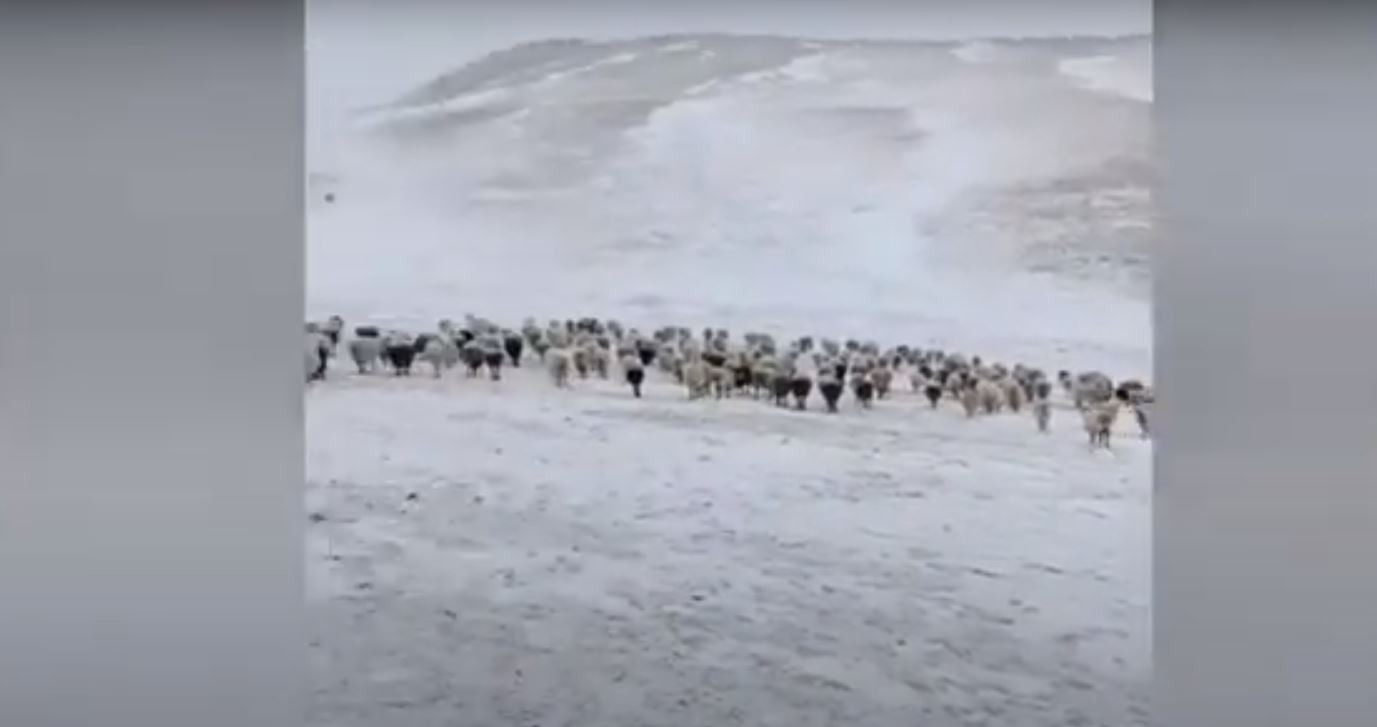At the same time, human lives have also been put at risk since, as pointed out by the International Federation of the Red Cross, the polar winter burdens the body and affects the availability of food.
Mongolia is experiencing its harshest winter in half a century with extreme weather conditions and temperaturesso low that they resulted in the death of over 4.7 million animals.
Alongside human lives have also been put at risk since as he pointed out the International Federation of the Red Cross, the polar winter takes its toll on the body and affects the availability of food.
These conditions, known as dzud (steppe destruction), characterized by a drop in temperature and heavy snowfall and ice covering grazing areas, preventing animals from accessing food.
About 300,000 people in Mongolia are traditional nomads with animal husbandry as their only means of livelihood and survival.
“Those people who are totally dependent on their livestock for survival, they have become destitute in just a few months»IFRC Regional Director for Asia Pacific Alexander Mathieu told CNN on Thursday.
“Some of them are no longer able to feed themselves or heat their homes».
Since November, at least 2,250 pastoralist families have lost more than 70% of their livestockaccording to the IFRC.
More than 7,000 families no longer have access to adequate food.
“dzud” has affected three quarters of the countrybut conditions are expected to worsen as winter continues.
“Now spring has come, but winter is creeping into Mongolia, there is still snow on the ground and animals are still dying“, said Mateu.
The Government of Mongolia declared a state of heightened preparedness last month that will last until May 15, and the IFRC has appealed for resources to ease the suffering of people who have lost their livelihoods.
The dzud had devastating economic consequences for herders and caused travel disruptionscommerce and access to health care and education for many citizens, especially those living in rural areas, as heavy snowfall makes travel on the road network impossible.
Mongolia is one of the countries most affected by the climate crisis, with average air temperatures rising by 2.1 degrees Celsius over the past 70 years, according to the UN Development Program which underlines that climate change caused by Man has disrupted the country’s four distinct seasons, leading to an increase in recurrent summer droughts and then harsh winters.
The effects of this year’s crisis are predicted to be greater than the crisis of 2010resulting in the deaths of 10.3 million animals, according to the IFRC.
“We are witnesses of numerous struggles faced by many pastoralist households from the loss of valuable livestock them up to the burdens of economic hardship, limited resources as well enormous pressures on people’s mental and physical health»said Ola Jumaeva head of IFRC East.
Source: Skai
I have worked as a journalist for over 10 years, and my work has been featured on many different news websites. I am also an author, and my work has been published in several books. I specialize in opinion writing, and I often write about current events and controversial topics. I am a very well-rounded writer, and I have a lot of experience in different areas of journalism. I am a very hard worker, and I am always willing to put in the extra effort to get the job done.












